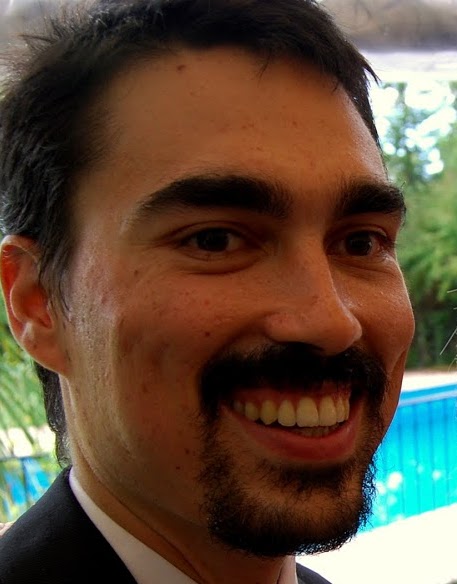Pre-West Interview: Nathan Sorenson

This interview was graciously conducted by Nola Stowe. She's a programmer, the co-founder of DevChix, and a prolific teacher. She recently ran ClojureBridge Austin. Please shout out to her and say thanks!
Introduction
Nathan Sorenson is the next interview participant. He is giving a talk at Clojure/West about DSLs. The background to his talk is available, if you like.
Interview with Nathan Sorenson
Nola: How long have you been doing clojure and how did you get into it?
Nathan: I've been using Clojure for 6 years. I got into the language during grad school: the libraries I needed to use for my master's research were all on the JVM, but I was becoming frustrated with the time it took to turn my ideas into experiments in code. I found Clojure and Incanter, and the REPL-based interactive workflow I experienced was incredible. There's no way I'd have been able to spend so much time exploring my problem space without Clojure.
Nola: What languages did you do before Clojure?
Nathan: Mostly Java and C++.
Nola: Your talk is about DSLs, what other language have you used in the past if any to write DSLs?
Nathan: It's often nice to write DSLs in typed FP languages. A DSL's syntax is a quintessential example of an "algebraic data type," and ADTs combined with pattern matching will make it easy to interpret your syntax correctly. Haskell has some particularly useful features: the "deriving" mechanism, for example, gives you traversal operations for your syntax for free. Haskell also has type classes that enable an interesting style of specification called "tagless final." This approach lets you sidestep the typical interpretation overhead and compile your DSL as though it were a first-class member of the host language.
Nola: What advice would you give a new programmer to Clojure?
Nathan: I came from an imperative, object-oriented mindset and had to do a great deal of un-learning before I could grok the basics of functional programming. I personally found classic Scheme books like The Little Schemer and SICP helpful in this journey. However, everyone learns differently based on where they are coming from, so it's important not to get frustrated if you don't find someone's advice, book recommendations, or metaphors useful!
Nola: What is the average airspeed velocity of an unladen Clojure REPL?
Nathan: Lots of people get distracted quibbling about the difference between European REPLs and African REPLs but that's the wrong idea. The trick is to decomplect the question into three simpler ones: what are the average airspeeds of the Starling, the Kestrel, and the Identity bird?
Nola: Thanks for the interview. It was very informative.
This post is one of a series called Pre-West Prep, which is also published by email. It's all about getting ready for the upcoming Clojure/West, organized by Cognitect. Conferences are ongoing conversations and explorations. Speakers discuss trends, best practices, and the future by drawing on the rich context built up in past conferences and other media.
That rich context is what Pre-West Prep is about. I want to enhance everyone's experience at the conference by surfacing that context. With just a little homework, we can be better prepared to understand and enjoy the talks and the hallway conversations.
Clojure/West is a conference organized and hosted by Cognitect. This information is in no way official. It is not sponsored by nor affiliated with Clojure/West or Cognitect. It is simply me (and helpers) curating and organizing public information about the conference.



